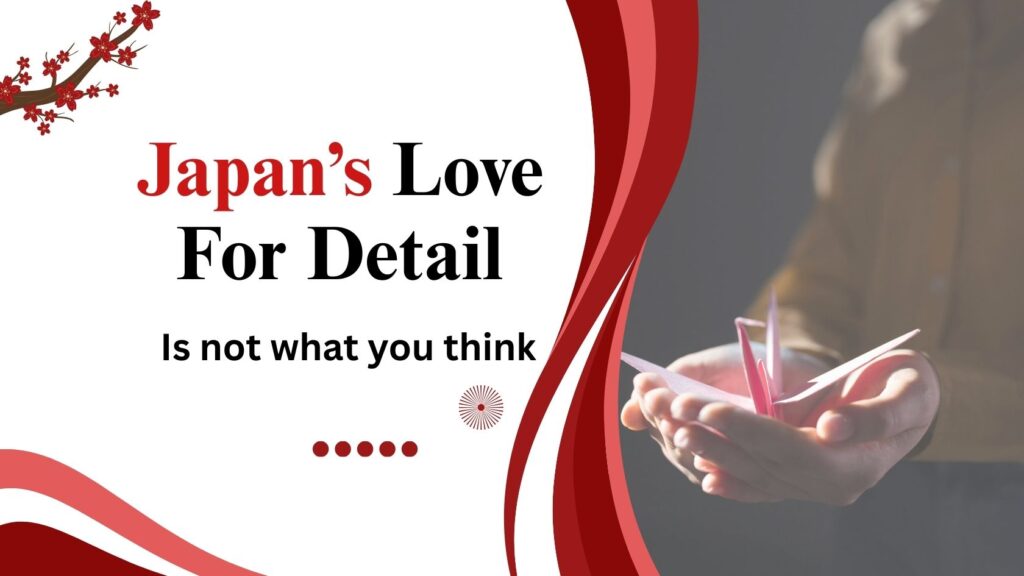Japan's Love For Detail Is Not What You Think

Before I came to Japan, I thought that attention to detail meant control. It meant lower tolerance of flexibility, more precision and less uncertainty. As I went through a number of jobs at different Japanese organizations, I realized that in Japan, however, detail is often not about controlling the material world. It is about ensuring that relationships are sustained, operations run seamlessly, and harmony is preserved.
One of my very first memories of attending a meeting in Japan is of myself frantically taking notes because I was afraid of forgetting to include all the issues discussed during the meeting in the report. Later, when I submitted the report to my manager was worried about the mistakes in my Japanese and expected him to comment on them. Imagine my surprise when I received a brief “よくやったね” feedback from him. Rather than worrying about linguistic mistakes, he seemed to appreciate the thorough inclusion of the details in the report.
The Japanese orientation to detail is expressed in a myriad of ways in everyday life but even more so in business. Whether it is an exhaustive list of items you need to prepare for a meeting, the seemingly endless 確認 (kakunin = check, verification) of numbers in reports, the information-overloaded slides of a presentation, or the scheduled minute-by-minute itinerary of a VIP guest, this mindset defines the effectiveness (if not the efficiency) of Japanese business practices.
As a cultural trait, this attention to detail comes naturally to my Japanese family, friends and colleagues. For me it is a skill that needs to be acquired. While it may sound prohibitive, learning to tune into subtleties that are otherwise inaudible or invisible to the untrained eye or ear is something that helps to build trust with Japanese colleagues and partners.
Some Points To Remember
1. What’s considered “complete” in your home culture may be seen as careless in Japan
A proposal that’s “80% good” may be perceived as sloppy, untrustworthy, and even immature. In Japan, readiness means total preparedness, and preparedness is demonstrated through the handling of even the smallest details.
2. Trust requires time. But it is also built through attention to the seemingly minor
Back home, professionals often expect to win trust by showing results or making bold decisions. In Japan, trust is often built through the quiet consistency of how you manage little things. How carefully you take notes, how punctual you are, how neatly your documents are formatted. These details communicate your reliability before your big ideas ever get considered.
3. Japanese partners expect you to notice what hasn’t been said
In a culture where being overly direct is avoided, the expectation is that partners will recognize and respond to subtle cues. This is also expressed through the use of silence as part of communication – to give space, avoid confrontation, show respect. Failing to notice these may lead to misunderstandings, or worse, to the silent erosion of a relationship.
This skill can be acquired by learning to pay attention to non-verbal cues (gaze, posture, subtle gestures, tone, etc.) Understanding that civility and politeness are not necessarily agreement with what is going on helps, too.
In Japan, details are a silent but indispensable way of showing care, earning trust, and building connection. What may seem excessive or invisible to some is, in fact, a message: “I respect you enough to take this seriously.” In Japanese business and culture, detail is part of the way people communicate. Oftentimes, it is a non-verbal conversation, too.
To learn about some other practical applications of the Japanese love for detail in business context, have a look at “The Japanese Presentation Paradox”.
© Maya Matsuoka, 2026, Tokyo, All Rights Reserved
